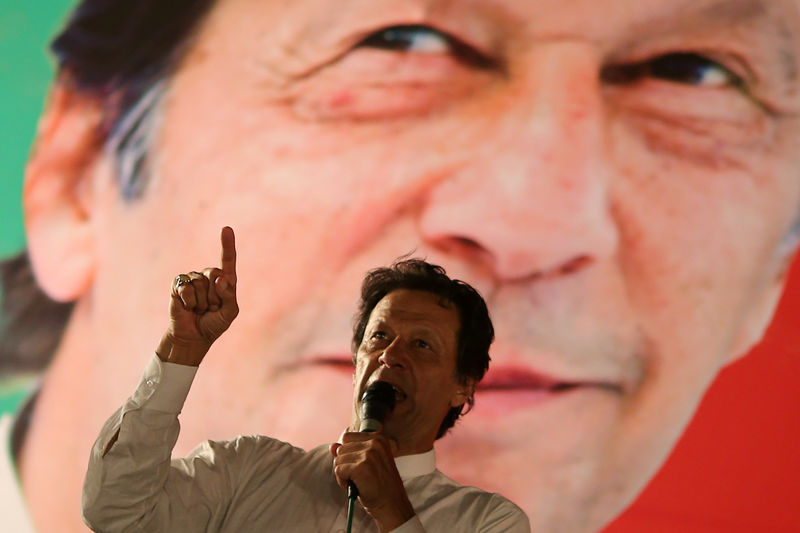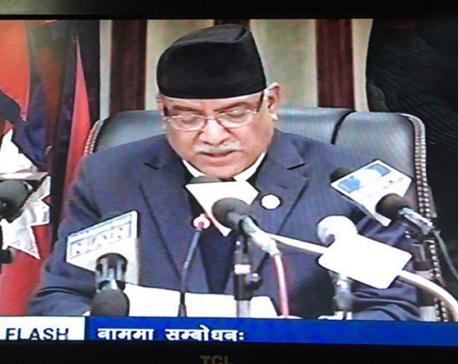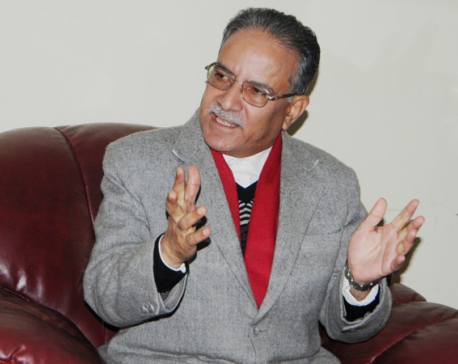
OR
Pakistan's next PM Khan faces challenges as nation celebrates
Published On: July 27, 2018 04:15 PM NPT By: Agencies

ISLAMABAD, July 27: The victory of Imran Khan as Pakistan's next prime minister has the South Asian country euphoric, as supporters of the former cricket hero have been celebrating his victory since Wednesday's elections. But Khan faces immense challenges.
On Friday, Pakistan's Election Commission declared that Khan's political party had won enough votes to lead the largest party in the parliament, however he will need to form a coalition to take control of the government.
In his acceptance speech on Thursday, Khan, who leads the Pakistan Tehreek-e-Insaf, or Pakistan Justice Movement, promised to create a welfare state and improve ties with key foreign countries, notably the U.S., India and Afghanistan.
"The reason why corruption has eaten into Pakistan's prospects is mainly because some are targeted for being corrupt while others go free," he said in a veiled reference to his predecessor, former Prime Minister Nawaz Sharif, who is now serving a ten-year jail sentence on corruption charges.
Khan intensified his campaign against Sharif more than two years ago when three of the former prime minister's children were named among those with substantial offshore wealth in the so called Panama leaks-the documents, released by the Panamanian-based Mossack Fonseca law firm.
Khan specifically targeted four luxury apartments in London's exclusive Mayfair district belonging to Sharif's children as evidence of the former ruling family's wealth, which was spent without paying taxes.
"Tabdeeli," or change, has since become a popular slogan and the theme of a PTI song. In contrast to the luxurious lifestyles of the rich, Khan cited examples of abject poverty across Pakistan, noting that 45% of the country's children suffer from stunted growth, and that at least 25 million children are out of school.
"The identity of a country does not come from its rich but the conditions surrounding its poor," he said.
On Wednesday night, PTI supporters celebrated their victory. Zubair Mehmood, a young Islamabad-based college student, told the Nikkei Asian Review, "Tonight, Pakistan has changed. We must attack corruption and clean up our country."
Though Khan used his speech to promise sweeping reforms, he is facing two major challenges.
First, the election has been riddled with claims that the powerful army supported PTI. Both the Pakistan army and Khan have forcefully denied the charges. But the accusations have prompted Khan's opponents, notably the Pakistan Muslim League-Nawaz, or PML-N, now led by the former prime minister's brother, Shehbaz Sharif, to reject the elections.
"Pakistanis will not accept their vote being trampled upon in this way," said Shehbaz Sharif after polls closed. "This is outright rigging."
Analysts say the PML-N will vigorously oppose the PTI and widen divisions in the government. For many businessmen, this carries the potential of domestic political turmoil in coming years.
Second, Khan has inherited a weak economy that will require unpopular decisions early on. These include trimming an annual trade deficit of $33 billion and dealing with an $18 billion current account deficit during the last financial year. Additionally, foreign exchange reserves of about $9 billion are barely enough to finance two months of imports.
"The position on the external side with these reserves is not good," said Muhammad Suhail of Karachi's Topline securities, an investment consultancy with interests mainly in Pakistan's equity market.
Suhail believes the new government will have to immediately curb imports and ask the International Monetary Fund for a plan to boost Pakistan's foreign reserves. "In return, the IMF will press for unpopular measures," he says. These could include cuts in subsidies to farmers, tariff increases for electricity and gas, and higher taxes.
"What we are likely to see will be a significant slowing down of economic growth in Pakistan," added Mr Suhail.
In the past, Sharif's government frequently mentioned China's promise under the China-Pakistan Economic Corridor to invest more than $60 billion in Pakistan's energy and infrastructure projects as evidence of coming prosperity. But analysts say, Mr Khan's new government will have to deal with the immediate challenges very quickly, noting that any benefit from the CPEC may not come for another few years.
A senior western diplomat in Islamabad who spoke to the Nikkei Asian Review on condition of anonymity said: "Prime Minister Imran Khan will realize very quickly his promises to the poor will have to wait for a few years. Pakistan's economy is surrounded by a lot of trouble right now"
While Wednesday's elections took place without major disruptions, many observers noted the suicide attack in the western city of Quetta that day that killed up to 30 people. In the past month of the election campaign, three politicians were killed in separate suicide attacks. Taliban militants later claimed responsibility. Khan himself was alerted at least nine times by Pakistani security officials of possible attacks.
Over the past five years, the Pakistan army has successfully driven the Taliban from areas along the Afghan border. But senior government officials agree that the threat from the Taliban remains.
For many investors, the two obstacles to large investments come from the present economic challenges and recurring Taliban attacks.
"There are lots of people who have come out to celebrate Imran Khan's very impressive victory," said the president of a company in Karachi. "But unless Pakistan's complicated problems begin to be solved, I doubt if there will be large scale investments," he added.
You May Like This

PM to address the nation at 4pm
KATHMANDU, May 24: Prime Minister Pushpa Kamal Dahal is set to address the nation from his office in Singhadurbar at... Read More...

PM to address the nation at 5pm
KATHMANDU, Feb 28: Prime Minister Pushpa Kamal Dahal is scheduled to address the nation today at 5pm. ... Read More...

Challenges ahead to keep unity of nation intact: PM Dahal
KATHMANDU, Aug 6: Newly-elected Prime Minister Pushpa Kamal Dahal on Saturday said that there are challenges ahead to keep the... Read More...






Just In
- Challenges Confronting the New Coalition
- NRB introduces cautiously flexible measures to address ongoing slowdown in various economic sectors
- Forced Covid-19 cremations: is it too late for redemption?
- NRB to provide collateral-free loans to foreign employment seekers
- NEB to publish Grade 12 results next week
- Body handover begins; Relatives remain dissatisfied with insurance, compensation amount
- NC defers its plan to join Koshi govt
- NRB to review microfinance loan interest rate











Leave A Comment